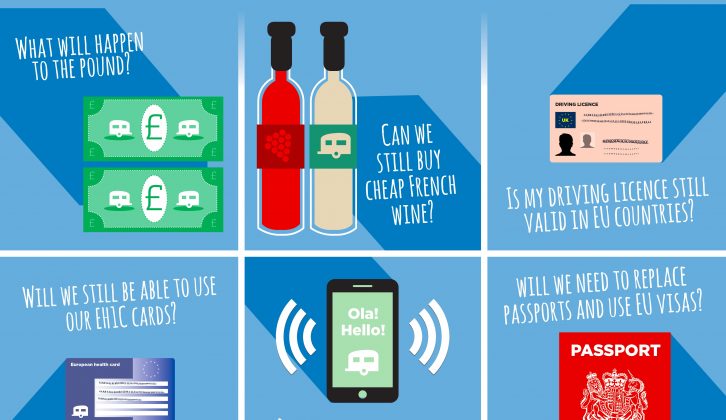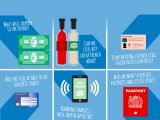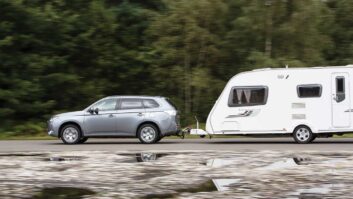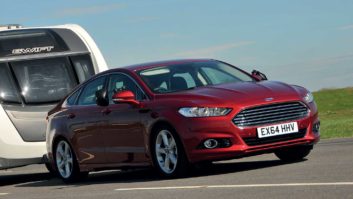Whichever way the UK’s EU referendum vote had gone, it was almost certain that changes to our EU membership would have been enacted in some form or another but, with British voters electing to leave, the effect on our caravan holidays is likely to be far more widespread.
At this moment in time, political matters are moving fast. One thing is for sure, though: an exit from the EU is certain to have an effect on European travel as we know it.
Here’s a round-up of what you need to know – but do bear in mind that no one is yet sure about exactly what will happen!
EHIC cards
The EHIC (European Health Insurance Card) is a crucial piece of credit-card-sized plastic that currently gives you access to free or discounted medical care across the EU and the European Economic Area (EEA), as well as in Switzerland. While it’s likely that this agreement will change upon the UK’s exit of the EU, for the time being (and for at least the next two years) these cards remain valid.
Make sure that your EHIC card has not expired; if it has, or if you need to apply, go online. It costs nothing to get your card, so avoid all websites that try to charge you.
Also, remember that the EHIC is not a replacement for travel insurance – it’s still important to take out a policy that will cover you abroad, whether in the EU or elsewhere.
Currency
The slide of sterling as the markets (and the rest of us!) wait to see what will happen has had the inevitable consequence of making touring elsewhere in the EU more expensive (although the strength of the euro has also dropped in reaction to the uncertainty).
If you want to protect your cash against further falls, you can purchase a prepaid card that locks in the rate on the day that you bought it. Moneysavingexpert.com has a particularly good guide to these cards.
Mobile roaming
This is one of the areas most likely to be affected by Britain’s vote to leave the EU. In June 2017, the EU is set to ban roaming charges within its borders, effectively meaning much cheaper calls when you’re caravanning abroad.
It’s now impossible to say whether we will benefit from this – although the UK government does have the power to crack down on the roaming charges of mobile providers in Britain, to stay in line with the EU.
Alcohol duty
France’s low taxation on alcohol is something that many of us take advantage of when travelling over the Channel, stocking up on cases of wine and spirits before returning home. Current rules state that 90 litres of wine and 110 litres of beer can be brought back (for your own consumption) without penalty, but it is possible that this will be dramatically reduced upon exit of the EU, particularly if the UK leaves the single market.
Those arriving from outside the European Union are currently limited to four litres of wine, 16 litres of beer and one litre of spirits. In turn, however, it does mean that we may be able to benefit from duty-free shopping within the EU, being allowed to claim back VAT on purchases made. For the time being, however, nothing has changed.
Passports and visas
The current purple UK passport is branded as a ‘European Union’ passport, but in reality this means little – it is first and foremost a British document. You should be able to continue to use it for at least the next two years; it has been suggested that, rather than replacing all EU passports, they will simply be updated when your current one expires.
It has been mooted that UK nationals will soon need a visa to enter the EU, but this is highly unlikely – there are numerous countries outside the EEA for which Britons need no visa to visit for up to 90 days, and it’s likely that a reciprocal agreement would come into force in our case.
However, additional border controls could mean a longer wait at customs.
Driving licences
As with your passport, your driving licence also features EU branding. It can continue to be used for at least the next two years and (as with our passports) is likely to be replaced when it expires, rather than before this date.
If you want to protect your cash against further falls, you can purchase a prepaid card









